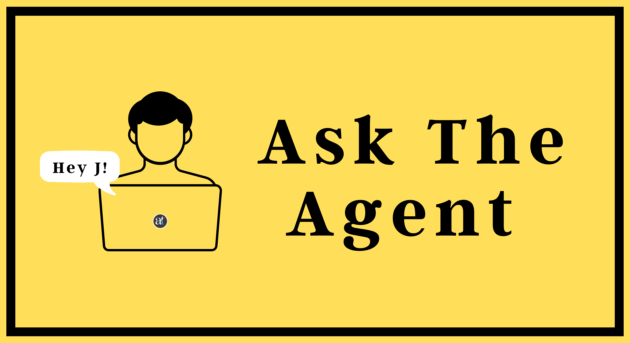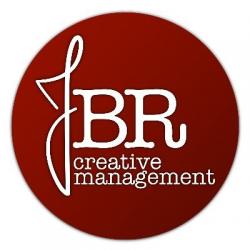Hey J! Ask the Agent: Third time’s a charm.
Hey J,
I bumped into an agent I recognised at the theatre and introduced myself. We had a really nice chat about the show we were seeing but I didn’t mention I was looking for rep. Is it too weird to follow up and ask about representation?
Thanks,
Liv
Hiya Liv,
The days when agents were unrecognisable, shadowy figures who lurked in the background unknown to anyone else are long gone. Thanks to the internet our faces are splattered everywhere these days. When I’m out at the theatre or an event I frequently have people come up to me and tell me they follow me on Twitter, or have read my blog, or have seen one of my YouTube Q&As. Sometimes people even stop me when I’m out walking my dog.
As long as you are respectful of someone else’s time and privacy, I think it’s acceptable and, in an industry where a lot depends on luck, it might even be serendipitous. Just remember, if you see an agent out and about they’re often out with someone from the industry and are probably working. As long as you keep that in mind it’s unlikely you’ll be annoying or a nuisance. It sounds like you had a great time chatting to the agent that you met.
One of my friends is a producer and director who has an incredible international network of contacts. Honestly, I think you could set him down anywhere in the world and within an hour he’d have set up a breakfast meeting, a coffee morning, lunch, drinks, and dinner with five different contacts. I once asked him how he managed to build such a vast network and his advice was really valuable.
He told me he always thinks in terms of a three-pronged approach. The first contact is just a quick connection. This might be saying “hi” at a party, introducing oneself at a press night, making a point of saying “hello” at a screening. It’s quick and it’s short. It’s first contact. His advice is to never go over five minutes and to always end it with “It’s been lovely meeting you, I hope we run into each other again.”
If you don’t have their email, that’s usually a good moment to ask for it. “Do you mind if I drop you an email?” Don’t ask for a cell phone number, just the email.
The second contact is a follow-up email. This is a continuation of the first contact. You might drop them a line and ask what they thought of the show, or the screening, or whether they enjoyed the party. Think of something that connects the two events in a positive, upbeat manner.
My friend says he always ends that email with a request for a meeting – “I have a project I’m working on and would love to have half-an-hour of your time over coffee to get your thoughts on it” – It’s non-specific and enticing and, importantly, it’s promising it has a time limit.
The third contact is a face-to-face meeting over coffee. That’s when numbers are exchanged, that’s when it becomes much more personable and a proper connection is established. That’s when they get added to his contact book and become a part of his network. He tells me his success rate with this three-pronged approach is about 70% – which is pretty good.
I think a version of this is useful for everyone to adopt. If you run into an agent or an industry professional somewhere, think of it as a first contact. Keep it short and positive and always end it by telling them what a pleasure it was to meet them.
You’ll really need to learn to read the room though! If I’m out with a casting director I don’t know very well I may be feeling a bit unsure of myself and wanting to give them all my attention so any interruption might throw me off my game. I might be out with someone I’m very relaxed with and so, if I’m feeling more at ease, I’ll be happy to chat for a bit longer. I might be on my own, feeling uncomfortable and desperate for someone to talk to so I’m not stood like a wallflower in the corner. Read the signals and you won’t go far wrong.
I think the key is to take your time. Be interested not interesting. Have you noticed most of us love talking about ourselves? It’s a subject we know very well. It’s much easier to get someone to talk about themselves than it is to get someone to listen while you talk about yourself. Be interested in the other person rather than trying to be interesting to them. Steer them onto safe ground – themselves. What they’ll remember is that you were nice and easy to talk to. We will have had a nice, relaxed time chatting to you and we’ll remember that. I promise that’s much better than remembering you as the person who tried to summarise their CV in two minutes, or tried to impress us with everything they know about Shakespeare in thirty seconds.
After that, the most natural thing in the world is to follow up with an email the next day reminding us of what a lovely chat we had. That’s the moment to ask if you can send your material for consideration. Asking if their books are open and if you can apply means you’re engaging with them and – crucially – you’re encouraging them to reply to you.
The aim should be to open the door to further communication. They may reply they’re not looking for new clients but if they’ve replied then that’s a result. Once you’ve opened that door, keep it open. Drop them a line every so often when you have something to say. If you see them out and about again, say hello. Engage with them on social media.
This industry is all about the connections you make and about how you nurture and develop those connections. I think my biggest tip would be – take your time, allow things to grow, tend the garden and build your network as wide as you can.
Stay connected. Stay creative.
J
Got a question? Email JBR at [email protected]




